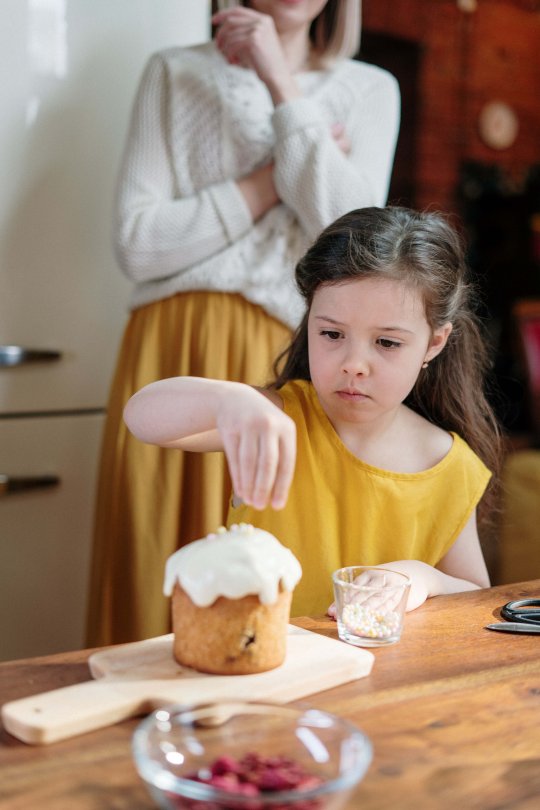Leave it, I’ll do it myself! Do you want your child to be proud of themselves? Let them act

Appreciate independence
You noticed that your children are trying to act independently, e.g. a toddler puts on their shoes and an older child started doing something that they have never done before? Appreciate their effort. Remember, it’s the path to the goal that counts, not just the goal itself. Congratulate them and talk to them about what their action means to them.
Your story
You can tell your child about your attempts to become more independent, e.g. when you were little. You can also call your parents and ask them to talk to their grandchildren. Perhaps they have some interesting and funny stories from your life. If you want to use a fictional story that will help you discuss developing independence with your child, you can use the letter written by 9-year-old Tuiliki from Namibia, in which she describes how she learned to ride a bike and why it’s important to her.
Note the following aspects of independence:
1. Developing skills leading to greater autonomy and efficiency;
2. Not giving up and trying again when we fail;
3. Looking for different ways to achieve a desired goal and develop the desired skills;
4. The ability to ask for and accept help when needed;
5. The ability of independently choosing the way to achieve a goal.
Who can... like I can?
See how many skills you already have! Divide the room in half, e.g. with a string, and invite the household members to play. The game consists in jumping from one side of the string to the other. Those who answer “yes” jump to the left side, whereas those who answer “no” stay on the right side. Ready?
Who can... like I can? ...clean the toys in the room ...make sandwiches ...collect scattered building blocks ...ride a bike ...run fast ...do the dusting ...skateboard ...sew buttons ...set the table ...make the bed ...put washed socks in pairs ...wash the dishes ...vacuum
You can also add your own ideas. Maybe your child wants to show off a skill or maybe you want to encourage them to start training one? Notice how many things you can already do, which makes you increasingly independent. Underline that they had to learn each of these things and it wasn’t always easy. When we learn, we make mistakes, we don’t always manage to do what we want, we get tired and even feel discouraged. Still, it’s worth it.
We really did it!
Some things come easily to us, others take a lot of effort and hard work. Together with your child, think about what was difficult for you to learn or achieve. What required a lot of effort, exercise and determination from you and maybe the help of others? What achievement are you proud of? Try to draw what you have achieved through perseverance. Alternatively, talk about what this situation looks like in retrospect. Have you had moments of doubt about whether you’ll make it? What helped you? Tell your child about your examples of such situations. Suggestions for other activities related to perceiving and appreciating independence can be found here.
All source materials are prepared by the team of Kulczyk Foundation’s Education Department in cooperation with teachers and experts – pedagogists, psychologists and cultural experts – and verified by an experienced family therapist Kamila Becker. Kinga Kuszak, PhD, Professor of Adam Mickiewicz University, Faculty of Educational Studies, provides content-related supervision over Kulczyk Foundation’s educational materials. All materials are covered by the content patronage of the Faculty of Educational Studies of Adam Mickiewicz University.
The article was published on 06.05.2020 on the website of Instytut Dobrego Życia (Good Life Institute)
Authors: Marta Tomaszewska (Kulczyk Foundation) and Anna Woźniak (Instytut Dobrego Życia)

